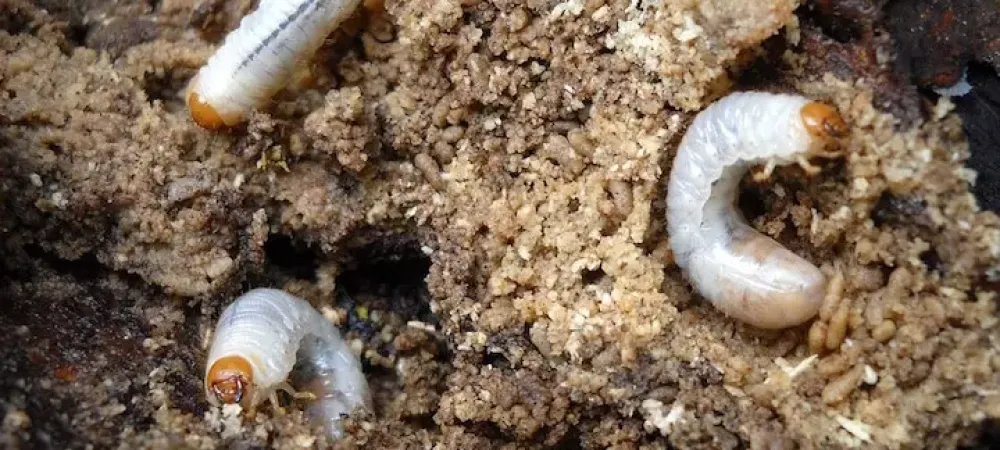How Do I Know If I Have Grubs in My Lawn?

We know that your green, healthy lawn was a long time coming. Caring for a lawn takes an immense amount of time, effort, and expertise. Seeing it get destroyed by grubs can be very upsetting and frustrating. Grubs can dig up your lawn and leave it in shambles. If you’ve woken up to a destroyed lawn, you might be up against grubs. Many times, people don’t realize they have a grub problem which results in more destruction occurring. With over two decades of experience providing grub control in Charlotte, Winston-Salem, Hickory, and the Piedmont, you can trust that our pest control experts are knowledgeable when it comes to grubs! Below, we'll discuss the top signs of a grub infestation and how to treat them!
What Exactly is a Grub?
First things first, grubs are the larvae - aka the immature form - of different species of beetles. Typically the classic lawn grub (white grub) is white, C-shaped, and about half an inch long. Grubs feed on the roots of your soil, which can cause patches of your lawn to die. Because grubs burrow deep into your lawn, you don't often see them with your own eyes unless you dig into your grass. Instead, the best way to identify the presence of grubs is through the damage they cause to your lawn.
Signs of Grubs in Your Yard
Noticing sponginess after watering your lawn? Finding brown patches in the middle of green? Grubs do their damage by eating the roots of your grass. With how rapidly grubs can spread, this can become an issue - fast. The presence of grubs can also bring along other problems. Birds, raccoons, and moles are just a few animals that are attracted to grubs because they eat them. Unfortunately, this doesn't mean that they'll just eat the grubs and kill them for you. While they’re looking for the grubs, they’ll tear up your grass in the process.
Oftentimes, grubs will have become a problem before you even spot them. Their eggs are typically laid in late summer, and after hatching, they begin feasting. The grubs feed all throughout the fall. If you don’t catch them when they start doing damage, you may end up having dead patches until next season. With this in mind, it’s better to inspect your lawn or call a professional earlier rather than later if you think you might have a grub problem.
If you are still unsure if you’re dealing with grubs, call a lawn care specialist here at Tailor Made Lawns and we can identify them for you.
Treatments for Grub Infestations
Being timely with your grub treatment is very important. If you catch them before they create a lot of visible damage, it’ll be easier to get rid of them and keep your lawn healthy. Once you determine whether or not your yard needs treatment, there are a few things you can do. Here are a few options:
Curative and Preventative Products
By using curative products, you will kill the grubs that are already existing on contact. On the other hand, using preventative products will kill grubs not only already existing but also the ones that may hatch in the future. This being said, preventative products may be the better option for the long-term health of your lawn.
Let Birds Do the Work
Yes, birds! This is an easy way to get rid of some of the grubs on your lawn. Birds like to feed on grubs, so if you attract them to your lawn they may help you out a bit. To attract the birds you can use things like nesting homes or bird feeders. This method - although easy - will most likely not get rid of all the grubs in your yard. You will also be left cleaning up the mess birds leave behind after digging up their meal. We don't
Enlist the Help of a Lawn Pro
Professional help is what we always recommend for grub control. Using preventative measures like pesticides on your own can be dangerous because you may not know the best ways to apply the treatments. Additionally, it can be very frustrating if you don’t have the necessary tools or knowledge. You could end up battling the same issue year after year not knowing how to stop it. With decades of experience treating grubs in the local area, Tailor Made Lawns can make sure your lawn is treated efficiently and left healthier than before.
